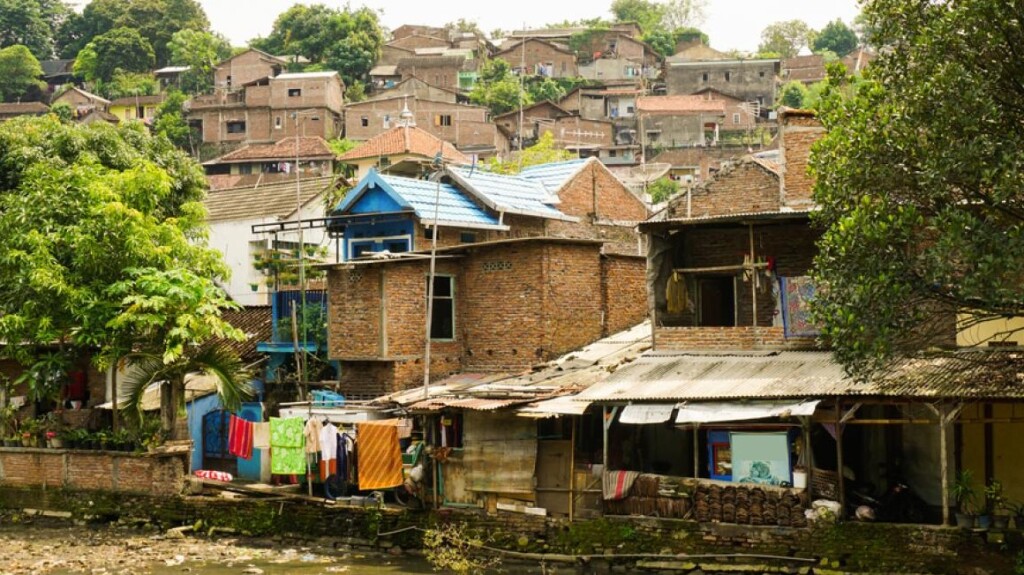Archive
Profiles of asylum – Crossing the red line
Oct 28th, 2020 | Personal Experiences, Refugee Community | Comment
“Sister, there is a red line in my country. If you cross it, you cannot go back.” To an outsider, Youssef* had it all in his home country of Egypt – a job as a software engineer, a loving wife and three children. But he had to leave it all behind. “Everyone has a reason for leaving their home,” he said, “mine is religion.” Fingers shaking, Youssef traced a long line on the table. “There is no talking, no touching, nothing between Muslims and Christians. I had no choice but to leave.”
In Egypt about 90% of the population is Sunni Muslims and the rest is Christian. According to Youssef, the undercurrent of discrimination is undeniable – he described it as a “culture of rejection”. Like many other Middle Eastern nations, religion is stated on identity cards. This makes discrimination and persecution easy – for example, Christians are consistently overlooked for jobs. “Some jobs, like the police force, or oil companies, are impossible for Christians, no matter how talented you are,” said Youssef, “my uncle didn’t get a promotion in twenty years because of what he worships. My cousin was turned away from his lifelong dream of being a policeman because of it.” Religion defined every sphere of Youssef’s life, and the ostracization became increasingly painful.
In recent years, Christians in Egypt have faced unprecedented levels of persecution, with attacks on churches and the kidnapping of Christian girls by Islamist extremists to force them to marry Muslims. Youssef recalls his church being vandalized and burned down by Islamist extremists: “I saw my sacred cross being eaten by flames, and my dear pastor beaten by thugs. I was angry, angry like the burning fire – but what could I do? If you are a Christian, even the police cannot protect you from the Muslim Brotherhood, and a court will only discriminate against you.” This feeling of powerlessness increased when his church community attempted to apply for the construction of a new church, but was told that the process could take up to ten years. “Egypt welcomes Muslims. But Christians like us, we are not welcome even in our own home.”
When Youssef’s wife, a Muslim, decided to convert to Christianity like Youssef, their situation took a turn for the worse. They began to receive messages of hate at their door, which soon escalated into death threats. “Converting is unheard of,” Youssef sighs, “I heard that one girl tried to do so and was immediately killed. Her family, friends, and pastor were also killed, many in broad daylight.” Fearing for their safety, Youssef, his wife, his two daughters and his son fled in search of a place with security. They arrived in Hong Kong.
Four years later, Youssef is safe. However, he now faces other challenges as an asylum-seeker. “I do not regret the decision I made to move here. I am safe, although I am not happy.” Although Youssef was a talented computer software engineer in Egypt, by law, he cannot work here. During our interview, this became a subject that he circled back to with increasing anxiety. Living on the scant government subsidies, he feels he cannot provide enough for his wife and three teenage children. “When my wife’s glasses broke, I could not fix them,” he says, “when my daughter had a high fever that required $1000 for treatment, I could not afford it. It is the worst feeling in the world.” Often Youssef lies awake at night in his tiny one-room apartment in Sham Shui Po, stress churning his stomach, feeling very much alone. “Every day is the same, and I see no way to improve our situation as asylum-seekers,” he frets. In the last four years, Youssef feels he has been stagnant, standing still and watching helplessly as life passes him by. He lamented, “I crossed the red line back home, only to arrive here to a never ending circle.”
Contributed by Sophia Zhang
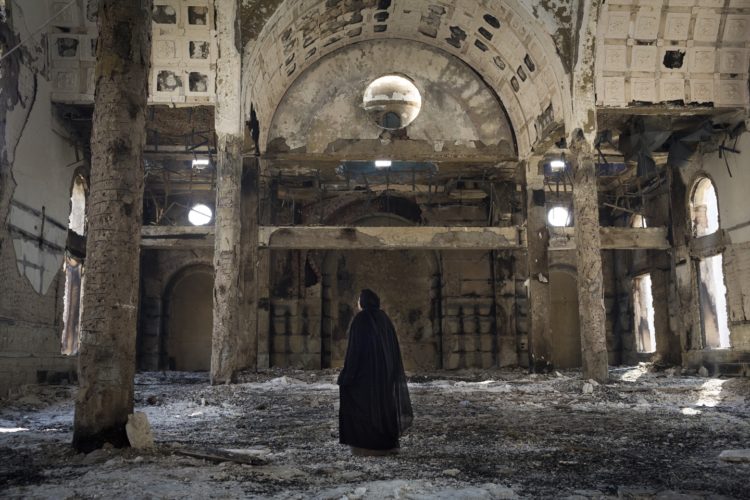
Profiles of asylum – When wasted time is the only certainty
Oct 18th, 2020 | Personal Experiences, Refugee Community | Comment
Fadil sat on the airport bench, his wife on one side and his children on the other. They did not know where to go: immigration had just denied their claim to be refugees in Hong Kong. Thus, he had to stay in the city for three months until his visa expired before he would become eligible to apply for asylum seeker status. This was the case for most asylum seekers in Hong Kong as the city is not a signatory of the 1951 Refugee Convention and has vowed not to recognize refugees.
Fadil had watched people -locals, tourists, officials- rush to and from in the airport for three days already. Some bore large, weighted suitcases; others nothing but a handy briefcases. Fadil wondered where all these people were going. Were they going home to visit family? On vacation with friends? Or were they running from danger like him? Regardless, it did not matter, for all these people clearly had a destination to look forward to, whilst he him did not.
It was amidst this confusion that a man approached Fadil. He was a burly man, face framed with a curling, short beard, with the expression resembling that of a kind, fair parent. He sat down on the airport bench directly opposite Fadil, leant forward in his seat, and crossed his arms. “What are you doing here?” the man inquired, directly meeting Fadil’s eyes. “I’ve seen you stay here for three days and three nights now. Why are you still here?” The man’s question did not come with judgment, rather with genuine curiosity and concern.
Seeing that his wife and children were sound asleep, heads rested on laps and armrests at awkward angles, Fadil leant forward and told his story. The man listened attentively, nodding and sighing until Fadil finally finished. The man was a practical one: he understood the many tragic events that had happened to Fadil and his family, but did not focus on them. Rather, his primary concern was what Fadil could do at this moment in time.
“Look,” The man said, “The NGO I work with runs this shelter where you and your family could stay until your visa expires. You can think about going there.” With that, he handed Fadil a flimsy brochure and wished him good luck. He was soon on his way to his destination.
However, the next three months were far from easy. The NGO separated asylum seekers by gender into two shelters which were located an hour or so away from one another. Thus, Fadil and his son stayed together in one whilst his wife and two daughters lodged in the other. The shelter they stayed at was only open at night, so they would leave at 8am and return after 6pm. The meals and many hours in between were left to Fadil’s own resourcefulness.
Fadil sat in the coffee shop of the mall, his family huddled around him on the small table. The sweet scent of brewing coffee and hot pastries overwhelmed him. Fadil was a mechanic back home, and thus his income then was sufficient to afford their family an adequate middle-class lifestyle: a large farmhouse, mostly home cooked meals, occasional celebrations in restaurants. However, upon arriving in Hong Kong, not being able to work, he had to suddenly become accustomed to a life without these comforts. Like today, as they sat, all they could do was lavish in the aroma of good food and watch others devour it, without being able to get so much as a single bite.
They certainly did not do this because they enjoyed being reminded of all the privileges that they had given up seeking asylum, but instead they only sat there to escape the scorching heat and humidity outside. It was unfortunate that Fadil had arrived at the worst of Hong Kong’s weather- July.
“Excuse me.” A young barista, perhaps a university student with a summer job, peered at their table. “Sir, you can’t sit here without buying a drink.” Despite being young in age, she was authoritative in words, her arms folded firmly before her chest. Without much choice, Fadil and this family got up, packed up what little they had brought with them, and were forced out of the café – once again kicked out of a temporary home.
This was how Fadil and his family spent the majority of their time during those three months: loitering aimlessly together in the day and separated at shelters in the night. Six years later, Fadil and family still wonder how to make sense of their lives and misfortune as their asylum claims remain unresolved and wasted time is the only certainty.
Contributed by Vania Chow

Profiles of asylum – I will keep trying and never give up
Oct 11th, 2020 | Personal Experiences, Refugee Community | Comment
• My Journey from my home country – I’d like to start from my childhood. I had a very rough childhood as we had to face such a hard time in my own country as there were a lot of people whom never liked our existence. Due to religious persecution, it was dangerous for us to stay there longer. While my father was trying his very best to get us to him in Hong Kong, which is why my family had to leave our country when I was 11. My father wanted us to have a better life. I grew up thinking someday our family’s destiny would change…
• A big change in life – The day we came to Hong Kong was one of the best day of my life as we met our dad whom I hadn’t seen for years. My younger brother and I started our school life here we got to know so much more about other people. We were safe here and the danger had stopped. We were happy since we were just little kids back then. But now we’re all grown up. The only thing we worry about is our future which is absolutely depressing and stressful.
• My personal feelings of being a refugee – Sincerely I’ve always had lots of negative thoughts about being a refugee around resident students as it was very embarrassing for me. In the past some students used to make fun of me and didn’t treat me equally. I used to be very distress by the behavior of my schoolmates, though I never gave up in any case. I’ve been very determined since then. I used to be ashamed of showing my Immigration paper in public. It is a gray A4 size document with my photo and particulars. Nothing like a Hong Kong ID card. I used to get very irritated showing to people. But now I’ve understood that this is how I’m going to fight for myself. It is the greatest beginning to acknowledge my identity and not hide it with shame.
• Experiences of being a refugee – There are innumerable things that the government has forbidden for us in Hong Kong; for example, we can’t work and we’re not able to take our siblings/ kids to specific places (theme parks). For people like us we can’t afford it as the price of the tickets is very high. It is very disappointing for us. All parents want their kids to go to theme parks and be happy. Unfortunately we are helpless at the moment, therefore I’d like to be the voice of refugees and give our community positive vibes, to each and every person who is surviving and staying home and banned from working. Hong Kong really needs a change of heart on refugees. It should think about the future of second generation.
• My future plans – Everybody has dreams which they want to come true. Yes, me too! I’ve dreams and plans I’ve made in my mind, but logically “refugees can’t work” puts a full stop to everything which is very frustrating. I always wanted to go for further studies after high school. As we all know universities in Hong Kong are very expensive. Students even work part-time to pay their fees. And here I am, a person who cannot work. Nevertheless I’ve never lost hope. I’m always trying my best in every situation. I remind myself that impossible is nothing.
• My advice to all youth refugees – We are in this together no matter how hard it is. We are all going to face it with a positive attitude, because there’s always hope when we keep trying. Although there are a number of biased people around us, we should never lose hope, but endeavor to change people’s negative perspective towards refugees. I have a feeling that someday we will be treated equally and fairly too. I understand that refugees are experiencing an extremely stressful and hard time. Most of all Refugee Union has always been there to support me and my family. I will keep trying and never give up.
Contributed by Beck
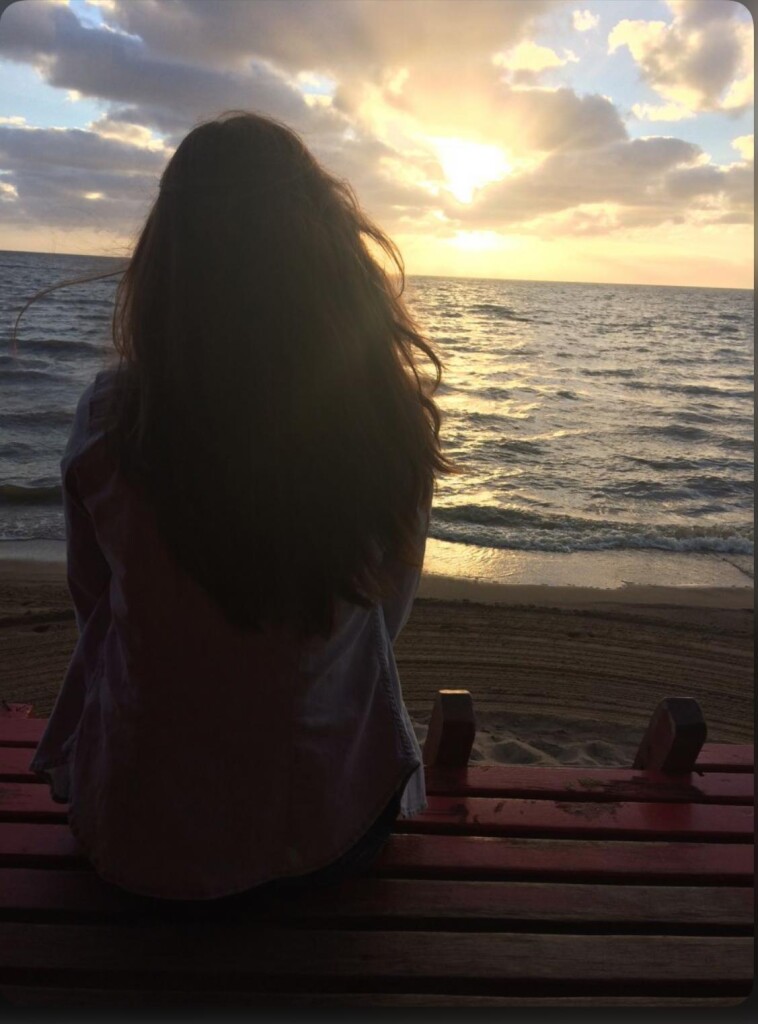
September Roundup
Oct 10th, 2020 | Advocacy | Comment
Refugee Union was founded in 2014 with visions to safeguard protection claimants’ rights and to ameliorate their prospects. Since our commencement of services, we have been working closely with our partners in the community and organising diversified programmes to actualise members’ psychological and social well-being.
Profiles of Asylum
New articles are now available on our blog:
- “Anna’s choice” by Vania Chow 06-09-2020 (read here)
- “Burned out of their homes” by Vania Chow 13-09-2020 (read here)
- “Learning to let go” by Vania Chow 20-09-2020 (read here)
- “Frozen in place while time moves forward” by Pedro Cortes 27-09-2020 (read here)
Thank you to all contributors for their time and efforts.
Virtual Engagement
We, asylum seekers and refugees, are active learners. We cherish every chance to learn even in times of immobility. This month we would like to show our acknowledgement to volunteers for organising an online Cantonese course (a total of four sessions) for both adults and children. Thank you for your efforts.
Donations Keep Going
We would like to express our sincere gratitude to our donors for lending us a helping hand in times of the coronavirus pandemic. This month we received donations of different items, which include daily necessities and protective equipment for our members. Thank you very much for our donors’ generous support!
Please stay tuned to our official website and social media pages (Facebook, Instagram, and Twitter) for the updates, and feel free to contact us by visiting our office or sending us an email at info@refugeeunion.org should you have any enquiry.
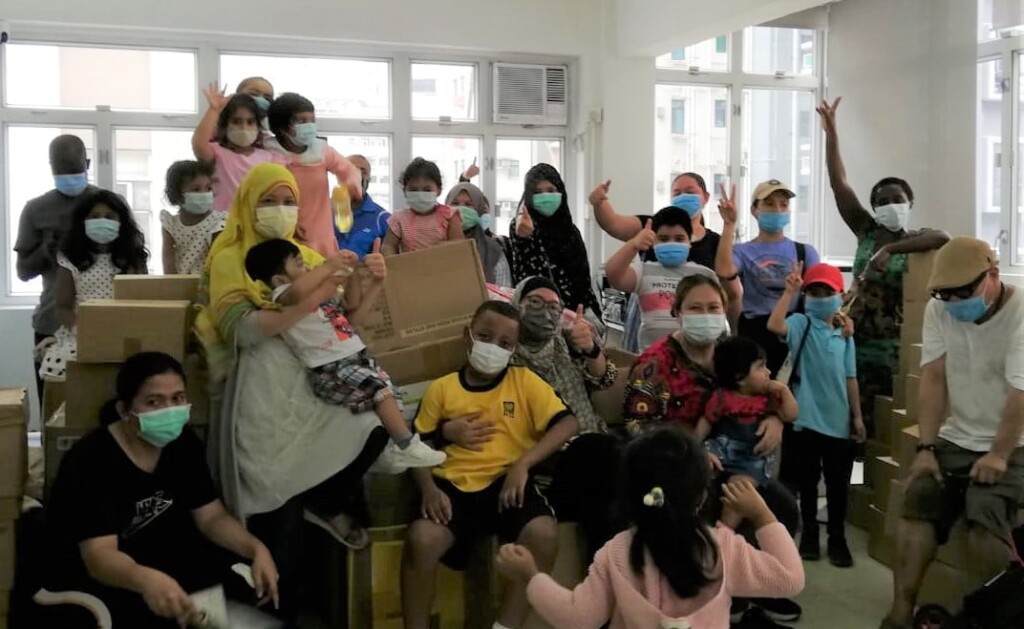
Profiles of asylum: When she’s older I can’t always be around for her
Oct 4th, 2020 | Crime, Personal Experiences, Refugee Community | Comment
Dara slammed the home door shut and pressed her back against it as her daughter’s hand clenched with fear around her wrist. Yells and screams resounded from the men in the street below, so furious they seemed to make the walls shake. Dara knew that she and her daughter were powerless if these men wanted to enter her home yet a part of her still clung to the belief that by leaning against the door, her daughter would be better protected.
As the sound of hurried footsteps drew nearer, her daughter’s fingers cinched tighter. Although Dara could feel her hand slowly weakening, she was thankful to feel her daughter’s grasp. The words yelled in the corridor were unrecognizable. Perhaps because muffling by the door, perhaps because they were foreign, for these men were also asylum seekers; or perhaps because they were so drunk they had little self-control in their speech.
Dara looked at her daughter who had now thrown herself onto her, wrapping her arms around her waist, thrusting her head into her stomach, as if trying to block out the noise. “Go.” Dara whispered, “Stay on the bed and do your homework.” Arms slowly loosening from Dara, the girl lugged a laden school bag from under the table, and pulled out her homework. This was the usual drill for the two when fights broke out: listening together at the door until it dragged on for so long that it was better for her shaken daughter to be distracted by something else. Then, Dara would have to listen, anticipate, guess at the men’s every move. It was something she had grown to be accustomed to.
Hong Kong is often referred to as one of the safest cities in the world. With security cameras covering almost every street, this image of chaos is not the one that comes to mind for most people. Indeed, the area where Dara and her daughter live is most definitely not representative of the city as a whole, but moving here was a difficult decision that the mother had to make in the search for a better living. Their last home was a dingy room in the center Kowloon, right in the hustle and bustle. There were positives and negatives of living there: the good being that everything they ever needed -school, grocery stores, transport links- were accessible, but the bad being that rents were incredibly high. They shared a bathroom with the twenty who lived on their floor, some elderly living alone and other asylum-seekers. That room was acceptable when Dara’s daughter was smaller, but as she grew older, now eight years old, the space was insufficient and a poor environment to study. Thus, they decided to move away.
The footsteps grew louder. Dara could feel the floorboards of her apartment vibrate with the men’s footsteps. A burley man, perhaps in his late twenties, passed Dara’s door. Behind his back, he held a package wrapped in a piece of dirtied black cloth. The package had the length and width of a long ruler. A feeling of dread swept over Dara as she already knew what the package was even half hidden from sight. Thankfully the man did not stop at Dara’s door, instead continued upwards, shifting his grip on the package so that he now clenched one end of it in his fist. Dara stopped looking. There was no point anymore. She already foresaw the ending of that frightening incident.
As Dara returned to join her daughter who was now engrossed in her schoolwork, a dreadful scream rose from above then something metallic clattered onto the floor. The cold sound, like that of an out of tune cymbal, of dropping metal rang through the whole building and momentarily captivated attention. After that, there was nothing: no yells, no commotion. It was as if everything had once again returned to how it usually was.
The next day, as Dara went up to the garbage room, she found the man’s hidden package lying on the floor. Cautiously, she kicked aside the cloth that shielded it. Underneath it, lay a blade: long, sharp, and blood stained. There were splatters of blood, but no body. Where was the victim? Who was he? What fury had come between him and the assailant? Dara had no answers.
During our interview, Dara frequently circled back to this incident, clearly an issue that troubled her. She expressed that she was not overly worried about her own personal safety, for she “was already accustomed to dealing with people and seeing things like this” and that “a woman of her age would unlikely be of interest to those men”. Instead, she was more concerned for the safety of her daughter particular as she got closer to becoming a teenage. Dara said, “When she’s older I can’t always be around for her” and “as you know, girls of that age are more likely to attract trouble.” However, as her daughter is already well integrated in her school and doing very well, Dara is reluctant to relocate again. Thus, in the meantime, before there are any allowances for change, the two must remain vigilant all the time, especially at home.
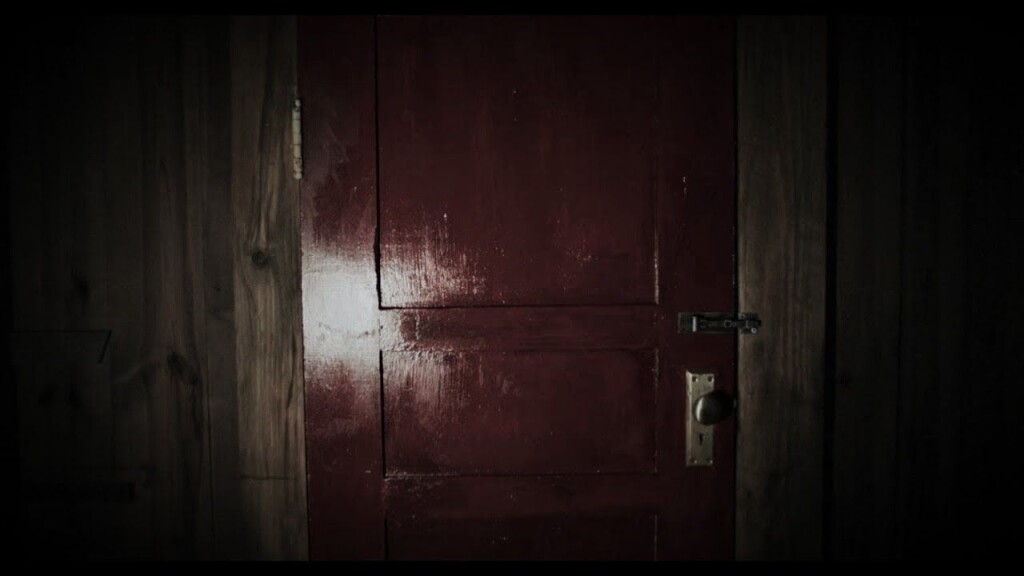
Profiles of asylum: Frozen in place while time moves forward
Sep 27th, 2020 | Legal, Personal Experiences, Refugee Community, Rejection | Comment
In 2007 Arin was seven years old and his brother, Viraj, was five when they left their hometown to seek asylum in Hong Kong because their mother’s life was in danger. They were too young to know why they were leaving the Punjabi city of Amritsar or where they were going. “Maybe for a better future, but I didn’t know why my mother left home when I was little,” Arin says.
Viraj’s first impression of his new home was the lack of noise. “Hong Kong is quieter than Amritsar.” Also, India’s Punjab region is mostly flat, expansive farmland and Hong Kong’s steep hills proved a challenge for the two youngsters. The beginning of their story here sounds like the story of immigrants anywhere. Having no friends initially and struggling with the linguistic and cultural differences, they remember that teachers were nice to them at school and they felt welcome. As they became more fluent in Cantonese (and eventually mastered a total of six languages) they were able to make friends and associate with the local culture through music, television, and social media. “We had seven or eight good friends from Form 1 and we had Chinese friends and others from different cultures,” remembers Arin.
Growing up, Viraj played football with his school friends while, over the years, they became used to climbing the hills of the city together to get to school. They have come to see themselves as children of Hong Kong. Things seemed normal and school life was good, but “outside school we faced many difficulties,” says Arin. “We didn’t have enough money to eat. We usually asked other people for money. In the past, we received $2000 each month. It was not enough for three of us.”
“It was hard. Every month we had to report to Immigration and miss school. It’s good that [the government] gives us things, gives us money for rent and food. But it is not enough. We once lived in a ‘cube house.’ That was hard for us. It was a very small place.” The two siblings lived with their mother in a 100-square foot room in a subdivided flat, meaning that there was just enough space for a bed within the plywood walls. They shared a kitchen and bathroom with seven other tenants in their subdivided unit. They rented this “cube” for $4000 a month.
“We are glad that time is over. Now things are better.” The network of refugees and NGO’s in place to assist them has gone some way in meeting the needs of people whose are, as a matter of policy, neglected by the government. “In secondary school, we got some help from other people and had some pocket money to spend each week.” After thirteen years, these young adults in asylum must come to term with their harsh reality compared to the options enjoyed by their former resident classmates.
While the additional aid eases some of the stress of daily life, the legal restrictions of their refugee status define the limits of their aspirations and hopes for the future. Since graduating in January of 2020, they have been spending most of their time at home “because there’s nothing to do.” Today some of their friends are working, others went to university, but the brothers cannot think far ahead in the future. Even if they could afford it, they would not be allowed to work after furthering their studies. Since their mother requested asylum protection in 2007, the brothers are legally defined as illegal immigrants and, thirteen years later, their lives remain frozen in place while time moves forward.
“I want to teach young children someday, like in kindergarten,” Arin says. “Maybe in the future I will continue my studies. But not now. Now I just stay home because there is nothing to do.” Like many young Hong Kongers, he loves online gaming. He stays up until four in the morning on most nights playing Call of Duty or PUBG because he dreads waking up in the morning. Days are long when you have nothing to do, even longer when you cannot study or work like their resident friends. For Arin, Viraj, and other second-generation refugees, each day is a repetition of the one before and any attempt to change this is met with severe consequences. “We are not allowed, but if we tried, we could get a job,” one claims, acknowledging that if arrested it would mean 15 months in prison and a criminal record.
Despite the hardships, it’s remarkable to note that Arin and Viraj have nothing but positive things to say about Hong Kong. “Yes, I like the place. It’s good. The people here are nice and I am really glad that I learned Chinese and made some Chinese friends.” There is even the lingering sense of optimism and gratitude commonly felt by many immigrants: “My mother changed our lives. If we were in India, we would be nothing,” said Arin, affirming that his mother made the right decision for them. They ask only to be allowed the dignity to live and work and the recognition of their basic rights as human beings.
When asked if they want to return to India, Arin said, “of course, I want to go back to India someday to visit my grandparents and my family. But I cannot go until immigration lets us go. They should let us go to our home countries and come back but they only allow us to leave if we never come back.” Hong Kong is their home. If they cannot come back, they will not leave.
(written by Pedro Cortes)
Arin and Viraj are available for interviews and presentations at schools and universities.
For bookings please email info@refugeeunion.org
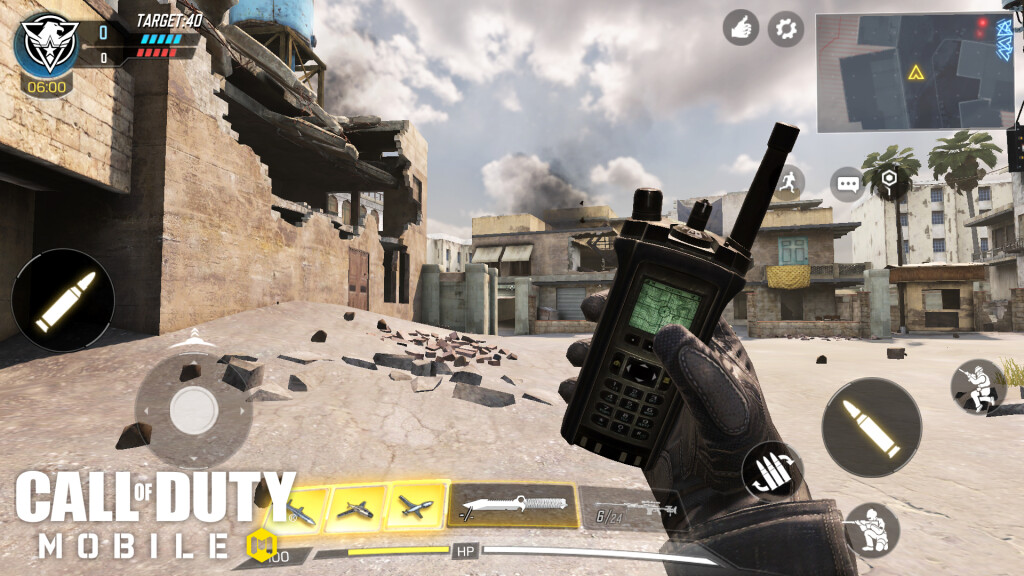
Profiles of asylum: Learning to let go
Sep 20th, 2020 | Personal Experiences, Refugee Community | Comment
Samuel held his breath as his phone squeaked monotonous beeps, each seeming lasting longer as he grew increasingly impatient. Finally, the beeps stopped and woman inquired, “Hello?” The slow drawl of the O and the silent H were unmistakable despite Samuel’s decreasing opportunities to hear them. Samuel did not answer, but merely pressed the receiver closer to his ear as if he did not want to miss the woman’s breath.
“Hello? Who is this?” she asked again. Samuel hesitantly replied, “It’s me, Mama. It’s Samuel in Hong Kong …” Then the line went dead. The woman had slammed the call shut before Samuel finished uttering the sentence. Samuel shook his head despondently and pocketed the phone with a sigh. This was not the first time his mother had shunned him. In fact, he had received this cruel treatment for twenty years, but nevertheless thought it was worth another try.
Samuel lay silently on the family bed shared with his wife and three children. He thought of his mother’s voice, the only person in the world who would not talk to him, yet the person he wanted to talk to the most. Religion had come between them: his mother had raised him a Muslim, but he had converted to Christianity. The reasons for completely cutting him out of her life were complex, but for his mother were serious enough to shun a son whom she presumably still loved.
His mother was not the only one to treat Samuel as an apostate. In fact where he grew up, violence was the reaction to Christian conversion. If Samuel and his family were to return to his hometown, it would cause a lot of pain for his extended family. Firstly, anyone who interacted with him would be punished, but, secondly, it would raise the threat of execution for his immediate family. It would be a public execution that would leave bloodstains on the street. The reality would be gruesome.
Samuel loves Hong Kong because the city accepted and protected his family. But, within this appreciation comes the frustration that persists for twenty years: he is not permitted to work. As a skilled construction worker who could maneuvering bulldozers and cranes back home, Samuel knows he is capable of earning money with his own two hands. He wishes he could support this wife and children through his own efforts, instead of relying on government welfare.
His inability to financially support himself vexed him terribly when he sat in the doctor’s examination room. “I’m sorry,” the doctor faltered, “We are unable to continue the treatment.” His eyes would not meet Samuel’s and instead fixated on the wall behind him. “Samuel, it’s your medical waver.” The doctor nodded slowly, “It only covers basic expenses. If you want to continue receiving treatment, you need to pay it yourself.” Samuel’s heart was hardened against the disappointment. He sat silently in the plastic chair, his fingers tightly clinched. He nodded, thanked the doctor then left without saying a word. No further explanation was required.
On the way home it wasn’t the first time Samuel was disappointed with his predicament. In essence, had his medical condition been life threatening, authorities had told him that they would rather watch him suffer. Luckily for Samuel, his medical conditions improved and life gradually returned to normal for the family. However, this normalcy did not persist for very long: Hong Kong’s street protests began again, hitting their lives especially hard as they resided near the urban area where many of the clashes occurred. Samuel’s sleep, already disturbed by sharing a bed with four people, continued to deteriorate. For many months, the blaring sound of sirens, shouting, and chants became bedtime songs for the family, teargas seeping through closed windows.
These events were regular turbulence in Samuel’s life: the shunning by his mother, the challenges of refugee life, the disappointment of his children, the limitation of medical services, the daily search for essential money, the endless waiting for a decision by Immigration were a rolling tide in his mind. Having survived in a merciless ocean for years, Samuel developed a coping skill that many don’t learn in a lifetime – he learned let go.
“I remind myself to let go,” Samuel explains. “I cry. I pray then let go of anything I cannot control. It is God’s plan. I just live with the hope that someday my time will come.” Although he prefers not to be sentimental for fear of losing what he cherishes, now Samuel considers Hong Kong home. No matter how many challenges he faces, he is grateful for the opportunity to escape the dangers of his country. He concluded, “My only wish for the future is that my children will not have to live my life. Because I made the choice to become a Christian, to leave my country. But for them, this decision of being refugees was made by me.” That thought saddens him immensely.
Contributed by Vania Chow

Profiles of asylum: Burned out of their homes
Sep 13th, 2020 | Personal Experiences, Refugee Community | Comment
Every night, Atif prayed that he would be wrong, that tomorrow would not be what he expected it to be. But, time and again, his prayers proved futile. The first time he saw it happen, he was startled, fearful, angered beyond words. However on that fateful summer evening, as he peered from behind the windows of his living room, all he felt was the sinking sensation of yet another tragedy was about to happen.
First, the fire danced mirthlessly at the base of the house, only leaving imprints of dark char on the brown wooden exterior. It seemed to mock the house and its inhabitants as it moved, taking its time to melt the ornaments that guarded the entrance, reminding the world that nothing was above the power of nature. Outside the house stood three men, the culprits. They seemed to bask in the sinister glow of the burning house, torches and protective gear in one hand and glimmering ornaments on the other.
Occasionally, they would glance around, checking to see if the streets were still devoid of people. It wasn’t that they thought their violence would go unnoticed, but more to seek validation of their power. They sought the glory of being feared, of holding the breath of the neighborhood, of tightening the barbed wire of torment around people’s hearts. If the community, like Atif, so much as raised a finger in protest, their homes would be torched too. Indeed, the house soon succumbed to the siege of fire. The roof cracked and crumbled, spilling onto the very things it was designed to protect with a blazing crash.
With no way out, within the depths of that inferno lay the remains of Atif’s neighbours. Yet Atif could not bring himself to stop watching. In the place of the familiar brown house that stood beside his home for years now stood the smoldering skeleton of a dwelling. The thought of the senseless deaths of his neighbours sent a chill down his spine. The realization grew in him: Today it was them, tomorrow it could be his family. It was only a matter of time, as Atif had committed the same apparently fatal act as his neighbour.
A few days prior, the two men had been summoned to court. The judge called to examine proof of ownership to their homes. The area had belonged to the two families for many generations, not through weighty title deeds, but through the sweat and toil of ancestors settling down on unclaimed land. That is how traditional societies function, through custom and tradition. If someone sold fruits at a street corner for years, that corner was theirs; if someone taught the children of the neighborhood, they were considered the teacher; the same occurred with houses. However, the political landscape had changed and governments took interest in communities previously left alone. Things began to change. The demand to prove land ownership was an example of that.
When Atif and his neighbour shook their heads anxiously before the judge, failing to produce documentation, they were unsure of what would happen. The judge had only nodded. With an air of authority he warned the men that the land they resided on belonged to the government. The judge sat up straight, alas meeting the eyes of the two men with his own narrowed ones; the soldiers at the back tensed, hands tightening on their rifles. The two men, looking at one another, had no choice but to accept the verdict and bring the devastating news home.
As summer faded into autumn, Atif’s cousin was also summoned to court, but unlike Atif, he approached the courthouse with a briefcase brimming with confidence. In the briefcase lay stacks of documents: land leases, water bills, telephone receipts spanning years. Atif’s cousin was in no doubt he would leave the courtroom victorious, having proven the legality of his ownership. But the judge was unimpressed and at first questioned the claim, “Your papers are insufficient.” Atif’s cousin stammered, “But … I can return home to retrieve more if your Honor permits.”
The magistrate seemed lost in thought. Atif’s cousin continued, “I have documents sent to my home from …” The judge raised his stamp and jabbed it inattentively at the papers before him. “That will not be necessary. The house is yours.” The sudden change of mind surprised Atif who realized that he had enough proof to win on appeal had the judge dismissed his ownership. Surprised by this reversal of fortune, Atif couldn’t wait to leave the courthouse before the judge changed his mind. He swung open the main gate, lifted a jubilant foot over the doorstep, and was ready to rush home with the good news.
A few hours later, Atif received news of his cousin’s death. He had been shot nine times at the gate of the courthouse. Documentation or not, the battle for land ownership could not be won. In fact, Atif’s family paid the ultimate price for opposing the powerful people who grabbed their land. Eventually Atif sought asylum in Hong Kong, leaving in Pakistan his parents, uncles and cousins who were all murdered to eliminate their claim to their ancestral land. Today Atif actively supports the Refugee Union and is grateful for the protection his families receives in Hong Kong.
Submitted by Vania Chow

August Roundup
Sep 12th, 2020 | Advocacy | Comment
Refugee Union was founded in 2014 with visions to safeguard protection claimants’ rights and to ameliorate their prospects. Since our commencement of services, we have been working closely with our partners in the community and organising diversified programmes to actualise members’ psychological and social well-being.
Blog Updates and Coverage
This month we are honoured to have a guest contribution on our blog — a piece entitled “Profiles of Asylum: From the Ancient City of Mosul to Hong Kong” which recorded an asylum seeker’s experience taking refuge in Hong Kong, adjusting to tremendous uncertainties in a state of limbo.
We are also thrilled to be featured on Table of Two Cities’ blog — drawing from an everyday life example, Vania Chow in her piece “The Taste of Ice-Cream: Vignettes from Refugee Union” depicted the plight of asylum seekers and refugees in Hong Kong.
Virtual Engagements
In times of COVID-19 pandemic, we are all forced to put face-to-face interactions on hold. With technological advancement, however, social distancing is never a barrier to our solidarity.
This month we would like to send our acknowledgement to the Hong Kong Outstanding Tertiary Students’ Services Association (HKOTSSA) for bringing us the Film Screening Night in a virtual format. We had a nice evening with you all.
There will be more virtual engagements happening soon, please stay tuned for the updates.
Donations Keep Going
In a difficult time, we would like to express our sincere gratitude to our donors for lending us a helping hand. This month we received donations of different items, which include daily necessities and protective equipment for our members. Thank you very much for our donors’ generous support!
Please stay tuned to our official website and social media pages (Facebook, Instagram, and Twitter) for the updates, and feel free to contact us by visiting our office or sending us an email at info@refugeeunion.org should you have any enquiry.
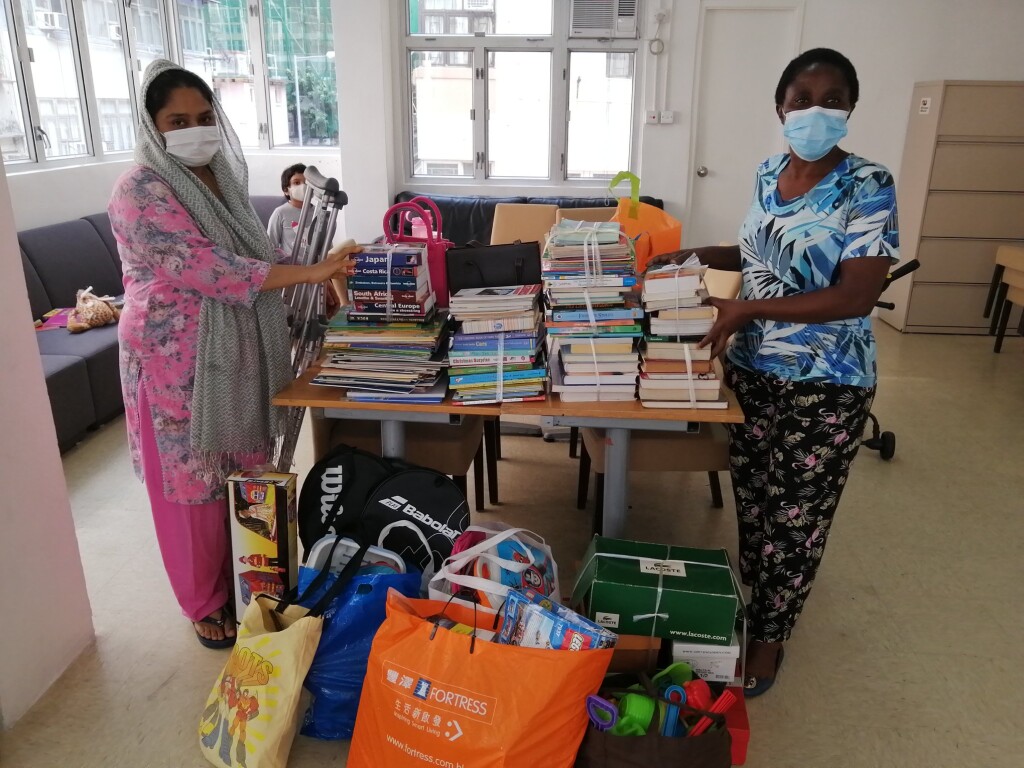
Profiles of asylum: Anna’s choice
Sep 6th, 2020 | Personal Experiences, Refugee Community | Comment
“Where’s your husband?” The doctor asked as Anna lay on the birthing chair, her hands wrapped tightly around the metal armrest in an effort to calm herself. Anna wasn’t anxious about the procedure, for she had heard all about it from the village midwife, nor was she fearful of the pain, but rather her vexation came from the dreaded phone call the doctor was entitled, in fact obligated to make. “Please!” Anna implored. The nurses cocked their heads aside as if desperate to hear the secrets to be revealed. “Don’t call my husband. He’s not a good man.” Her voice trembled inside the silent delivery room, suddenly accentuating its sullen tension. The doctor glanced at the nurses who averted their gazes, busying themselves with meaningless tasks. He looked at Anna, the young, mid-20’s woman who sat before him, her large brown eyes glistening with tears “Doctor,” she muttered, “these scars are from beatings at home.”
With a gingerly apprehension, the doctor pulled up the hem of the robe, unsure of what to expect. Atop her tan skin were a series of browning bruises, many aligning with fading scars. In the center of this troubling mosaic was a spot that was exceptionally dark in colour and round in shape, almost resembling a hard-boiled egg. The doctor grimaced: this was not the worst he had seen, but it was definitely not a pretty sight. Anna explained, “He pointed his hunting gun at me and hit me with shoes!” Unable to keep up a facade of apathy, the nurses turned to look at the woman in the birthing chair. Some wore an expression of curious sympathy, others that of a weariness that came with a hint of resignation. Perhaps they wondered what atrocities Anna had committed to deserve such a punishment from her husband. “He wants to kill me.” Anna’s voice sliced through the stillness of the room with fragile coldness.
Without a sign of acknowledgement, the doctor signaled to the nurses, washed his hands, put on protective gear, and readied to deliver Anna’s baby. For the first two months, with her newborn baby girl, Anna hid from her husband. She lived in constant fear, staying only within the boundaries of her parents’ house, not daring to interact with anyone but direct family. However, the longer she stayed hidden, the more desperate her husband grew to find her. It was one thing for a woman to disobey her husband, quite another to give birth in secret, running away and hiding their child from him. It was an unspeakable wrongdoing in their traditional community. Anna did not know what would happen if he ever found her and their daughter. She certainly did not wish to find out.
“Mama,” Anna whispered, her supple hands wrapped around her mother’s wrinkly hands. “I can’t live like this.” Her mother’s trusting gaze met Anna’s with a dreaded sense of understanding. “And I won’t let my daughter grow up like this.” Anna felt her mother’s hands tighten around hers before longingly reaching for the warm bundle of a baby that slept in her lap. Without the comfort of the baby in her lap, Anna felt vulnerable and empty. In an attempt to quench the perturbation within, she pushed her clenched fists hard down onto her knees. “I know. You have to go,” her mother whispered, her fingers caressing the baby’s face with a gentleness unique to mothers. “You have my blessing.” Unconsciously, Anna’s hands relaxed and mirrored the soft strokes of her mother’s. Up. Down. Up. Down. After all, Anna was still just a woman of twenty, faced with a situation that would make more experienced women crumble.
Anna’s mind drew a perplexed blank. Before she knew it, she stood at the door of the hut, one hand on its worn bamboo handle, the other clutching her travel documents. She couldn’t take her eyes off the elderly woman and the precious bundle in her arms. Her mother and her daughter meant the world to Anna. They were the two people in her life that she would be willing to sacrifice everything for, whom she loved and trusted unconditionally. Yet there she stood, about to abandon them at their most fragile, when they depended on her the most. Almost in a guilty attempt of self-justification, Anna tried to reason with herself. If she stayed, her husband would eventually find her, and if that nightmare came true, there would be no saying what would happen next …
With that thought, Anna took a deep breath, savouring the familiar smell of boiling milk in the kitchen. She looked around for the last time at the only home she knew, then stepped out the door. As the saying goes, “when one door closes, another one opens”, and for Anna, this was the gateway to Hong Kong. Today, Anna has started her own family in Hong Kong and is the mother to two children.
Submitted By Vania Chow
